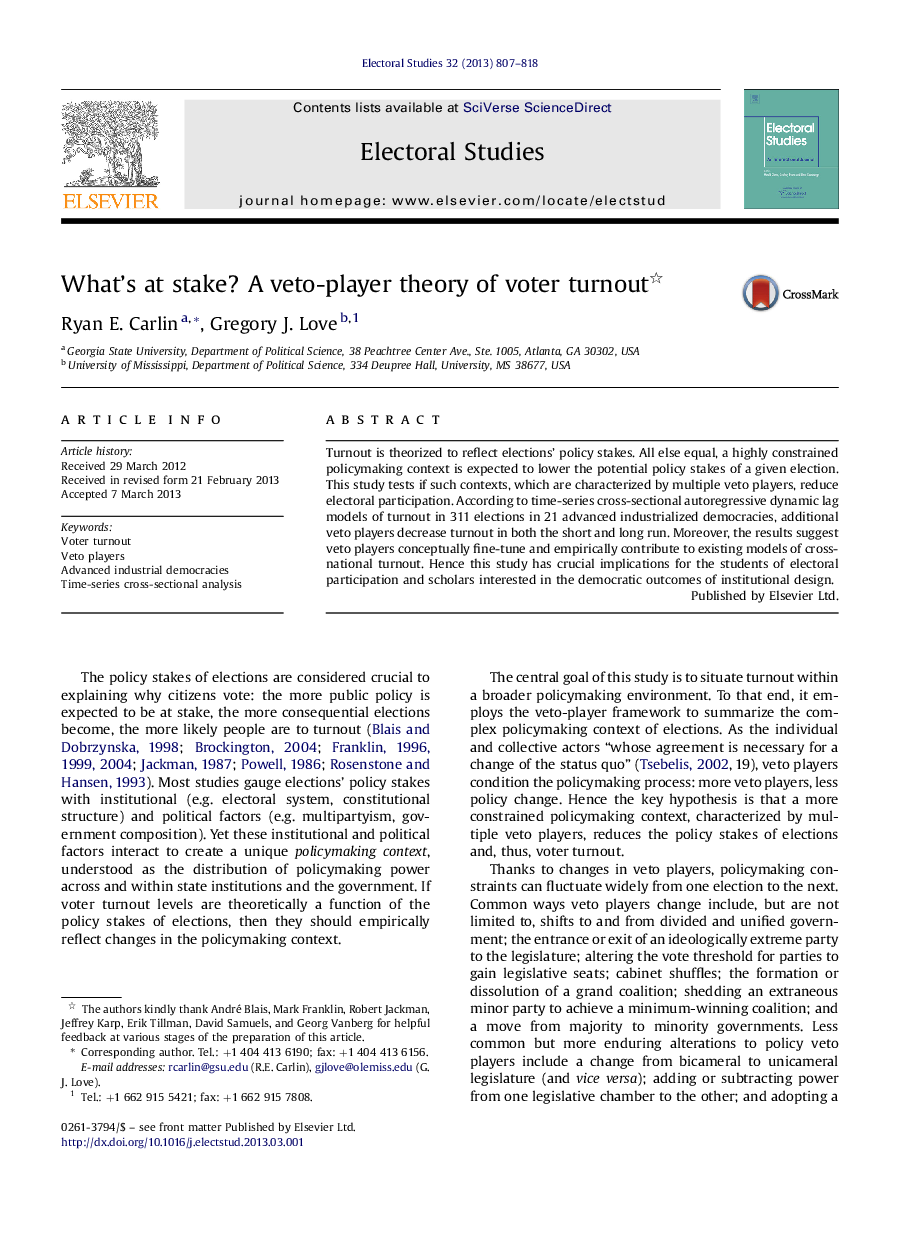| Article ID | Journal | Published Year | Pages | File Type |
|---|---|---|---|---|
| 1051755 | Electoral Studies | 2013 | 12 Pages |
•The policymaking context of elections is conceptualized in terms of veto players.•We theorize turnout is lower where veto players reduce elections' policy stakes.•We use time-series cross-sectional data from 21 established democracies, 1950–2007.•Autoregressive dynamic lag (ADL) models estimate short-run and long-run effects.•Veto players decrease turnout in the short run and even more in the long run.
Turnout is theorized to reflect elections' policy stakes. All else equal, a highly constrained policymaking context is expected to lower the potential policy stakes of a given election. This study tests if such contexts, which are characterized by multiple veto players, reduce electoral participation. According to time-series cross-sectional autoregressive dynamic lag models of turnout in 311 elections in 21 advanced industrialized democracies, additional veto players decrease turnout in both the short and long run. Moreover, the results suggest veto players conceptually fine-tune and empirically contribute to existing models of cross-national turnout. Hence this study has crucial implications for the students of electoral participation and scholars interested in the democratic outcomes of institutional design.
